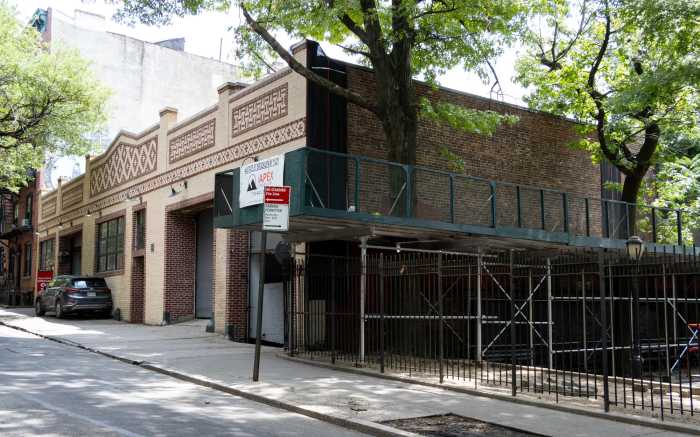A federal judge this week dismissed the central lawsuit against Bruce Ratner’s Atlantic Yards, striking a major blow to opponents of the $4-billion, arena, residential, retail and office skyscraper project.
The costly lawsuit — officially known as Goldstein v. Pataki, taking the name of its lead plaintiff, Daniel Goldstein of Develop Don’t Destroy Brooklyn, and the former governor — sought to challenge the government’s right to seize privately owned property and turn it over to a private developer, seizing on a line of attack left open by the Supreme Court’s controversial 2005 Kelo decision.
In that watershed 5-4 ruling, the High Court upheld the right of governments to seize property long as the private project served a public purpose and had been “carefully considered” — two legal requirements that Ratner’s “Jobs, Housing and Hoops” scheme did not meet, the dismissed suit charged.
Brooklyn District Court Judge Nicholas Garaufis ruled that the plaintiffs — 13 condemned property owners, including the management of Freddy’s Bar on Dean Street — hadn’t shown “sufficient” evidence that the developer, or the Empire State Development Corporation, which condemned land for the project, had abused the government’s power to take private property.
Garaufis said that while the ESDC and the developer may have overstated the public benefit of the glitzy, Frank Gehry–designed development, there was still enough benefit to legitimate the taking.
“[T]he project will create large quantities of housing and office space, as well as a sports arena, in an area that is mostly blighted,” he wrote, adding that the plaintiff’s allegation that the public would not benefit from Atlantic Yards is “baseless.”
State officials cheered the decision.
“This is yet another instance in which the project has stood up to legal scrutiny,” said ESDC spokesman Errol Cockfield.
Plaintiffs’ attorney Matthew Brinckerhoff said he would appeal the ruling.
“We are confident that the appellate court will allow this case to proceed to trial … [where] the citizens of New York will finally learn the real reason plaintiffs’ properties were selected to be forcibly taken,” Brinckerhoff said.
While several cases against Atlantic Yards are pending, the case dismissed was the only challenge specifically focused on the state’s use of eminent domain, and the only challenge that had a chance of blocking the project completely.
An expert on governmental takings, Steven Anderson of the anti–eminent domain Institute for Justice, said Brinckerhoff had a tough road ahead of him.
“New York law isn’t written to favor homeowners or small businesses,” Anderson said. “It favors the beneficiaries of eminent domain.”
Ratner declined a request to comment on the big win.
























